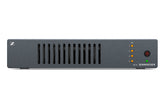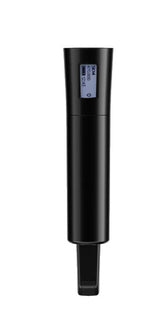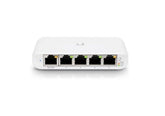Mesh Networking vs. Traditional Routers: Which Is Right for You?
In today's connected world, a reliable Wi-Fi network is essential. When setting up or upgrading your home network, you might find yourself choosing between a traditional router and a mesh Wi-Fi system. Understanding the differences between these two options can help you make an informed decision that best suits your needs.
Traditional Routers
A traditional router is a single device that connects directly to your modem, broadcasting Wi-Fi signals to your home. The strength and reach of this signal depend on the router's power and the layout of your home. In smaller spaces or open floor plans, a traditional router can often provide adequate coverage. However, in larger homes or those with multiple floors and thick walls, you might experience weak signals or dead zones in areas far from the router. To mitigate this, some users add Wi-Fi extenders, but these can sometimes lead to inconsistent performance and require multiple network names (SSIDs).
Mesh Wi-Fi Systems
Mesh Wi-Fi systems consist of multiple devices, known as nodes, that work together to provide seamless Wi-Fi coverage throughout your home. One node connects to your modem, while the others are strategically placed to eliminate dead zones and ensure a strong signal everywhere. All nodes share the same network name, allowing your devices to switch between them seamlessly as you move around your home. This setup is particularly beneficial for larger homes or those with challenging layouts.
Key Differences
-
Coverage and Scalability: Mesh systems are designed to cover larger areas and can be easily expanded by adding more nodes. Traditional routers have limited coverage, and extending their range often requires additional equipment like extenders, which may not integrate as seamlessly.
-
Performance: Mesh networks can provide more consistent speeds across your home. Each node communicates with the others to find the best path for your data, reducing latency and maintaining strong connections even at the network's edge. Traditional routers may experience signal degradation over distance, leading to slower speeds in areas farther from the router.
-
Setup and Management: Many mesh systems offer user-friendly apps that simplify setup and network management, including features like guest networks and parental controls. Traditional routers vary in their interfaces, and some may require more technical knowledge to configure and manage.
-
Cost: Traditional routers are generally more affordable upfront. Mesh systems tend to be more expensive due to the multiple devices included. However, the improved coverage and performance can justify the higher cost for larger homes or users with greater connectivity needs.
Which Is Right for You?
-
Choose a Traditional Router if: You have a smaller home or apartment with a straightforward layout, and your internet usage is moderate, primarily involving browsing, streaming, and light gaming.
-
Choose a Mesh Wi-Fi System if: You have a larger home, multiple floors, or areas with weak Wi-Fi signals. Mesh systems are also ideal if you have numerous smart devices, engage in online gaming, or stream high-definition content and require consistent, robust connectivity throughout your space.
Both traditional routers and mesh Wi-Fi systems have their merits. Assessing your home's size, layout, and your specific internet usage patterns will guide you to the best choice for a reliable and efficient home network.












